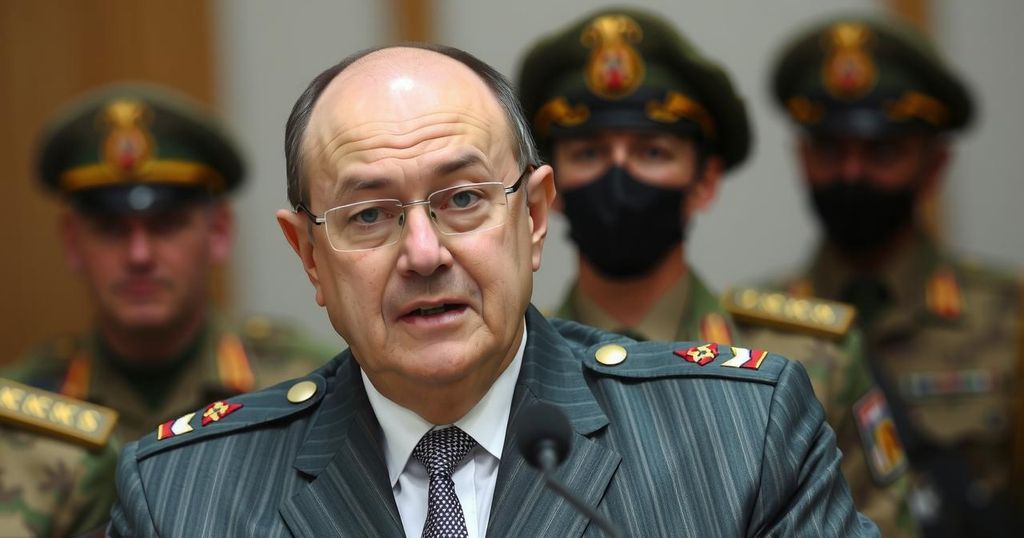Libyan Prime Minister Rejects Russian Military Reinforcements Amid Sovereignty Concerns
Libyan Prime Minister Abdul Hamid Dabaiba opposes Russia’s military enhancements in eastern Libya, asserting the country’s need to avoid becoming a center for global conflict. Dabaiba emphasizes Libya’s sovereignty and warns against any foreign military presence. As the U.S. imposes economic pressures on Libya’s leadership, Dabaiba’s stance aims to demonstrate alignment with Western interests amidst ongoing internal strife and international diplomacy.
The Prime Minister of Libya’s UN-recognized government, Abdul Hamid Dabaiba, has publicly opposed Russia’s efforts to bolster its military presence in eastern Libya, emphasizing that the country must not become a battleground for international conflicts. Dabaiba expressed concerns that such actions would exacerbate Libya’s internal strife, illuminating the divisions within the country since the fall of Muammar Gaddafi in 2011.
Recent reports have suggested that Russia is transferring military equipment from its bases in Syria to eastern Libya, where a rival administration, supported by military leader Khalifa Haftar, has long benefited from Russian backing. Dabaiba made it clear that his government would reject any transfer of Russian weapons into the country, stressing that no patriotic Libyan would accept foreign dominance over Libya’s sovereignty.
In light of these developments, Dabaiba has engaged with the Russian ambassador, seeking clarification on these military movements. Analysts have suggested that Dabaiba’s stance reflects an attempt to align himself favorably with U.S. interests, especially given the increased economic pressure from Washington on Libyan officials regarding corruption issues.
Harchaoui, an associate at the defense thinktank RUSI, remarked on the significance of Dabaiba’s comments, suggesting they indicate a shift in Libya’s political dynamics and pose challenges for Russia’s positioning in the region. Furthermore, as U.S. economic oversight intensifies, the Central Bank of Libya faces scrutiny, which could unveil financial misdeeds linked to oil smuggling and connections with Russia.
The potential for Russia to expand its influence also hinges on the changing political landscape in Syria. With the Assad regime’s fall leading to a more hostile environment for Russian interests, Harchaoui noted that Russia’s previous comfort in managing its military presence is likely diminished.
Libya has been embroiled in conflict since the 2011 uprising that overthrew dictator Muammar Gaddafi, leading to a split between the UN-backed government in Tripoli and a rival regime in the east that enjoys military support from Khalifa Haftar and foreign allies like Russia. The presence of Russian military forces and their strategic maneuvers in Libya have become key concerns for the internationally recognized government, which aims to maintain control and stability while asserting national sovereignty against foreign interventions. The geopolitical dynamics are further complicated by pressures from the United States and the ongoing economic issues within Libya’s governance, particularly regarding financial transparency related to oil revenues.
In conclusion, Prime Minister Abdul Hamid Dabaiba’s resistance to Russian military reinforcements in Libya underscores the fragile nature of the country’s political landscape and its ongoing struggles with foreign influence. As Libya navigates complex relationships with local and international powers, Dabaiba’s firm stance indicates a desire to reclaim national sovereignty and solidify connections with Western allies amidst rising tensions and economic scrutiny. The path forward remains uncertain, especially as foreign involvements in Libya continue to evolve in response to the shifting geopolitical context.
Original Source: www.theguardian.com




Post Comment